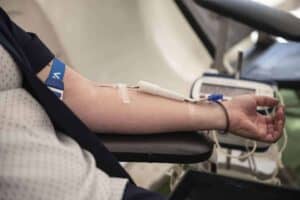There is optimism that progress could finally be made, after the inquest was marred by delays last year.

An inquest into the deaths of 144 mentally health patients moved from Life Esidimeni facilities to ill-equipped NGOs in 2016 resumes on Monday, after adjourning in December last year.
The inquest began on 19 July 2021, and is seeking to determine the legal cause of death of the patients, as well as if the deaths were due to negligence on the part of the Gauteng health department.
Many of the patients died from pneumonia, dehydration, hunger and diarrhoea, with the under-resourced facilities they were moved to said to have cut costs significantly.
SECTION27 legal researcher Mbali Baduza told SABC News there was optimism that progress on the inquest would finally be made, in light of the delays experienced last year.
ALSO READ: Life Esidimeni inquest shows why ‘mental health must be taken seriously’
Previous testimonies
At the time of the transfer of patients, the Gauteng health MEC was Qedani Mahlangu.
So far, Mahlangu’s legal representatives said she followed advice from medical experts in the department, and that the final decision to move patients was ordered by Gauteng Premier David Makhura.
Just days after the inquest began, former Life Esidimeni MD Dr Morgan Mkhatshwa said managers in the Gauteng health department were frustrated by the political pressure to move patients.
Mkhatshwa told the Pretoria High Court in July last year that former director of mental health in the Gauteng health department, Dr Makgabo Manamela and her team, expressed frustration with the political head “unwilling to consider the timeframes given for the transfers.”
ALSO READ: Life Esidimeni: Political pressure prompted moving patients, inquest hears
Three levels of accountability
Sasha Stevenson of SECTION27 told GroundUp last year there were three levels of accountability needed in the inquest launched by the National Prosecuting Authority in the Life Esidimeni case.
First, for the state to take accountability for what happened, which was achieved through arbitration.
Second, for professional accountability from the healthcare workers and professional bodies involved.
The third level is criminal accountability, said Stevenson.
“The inquest is not a criminal trial but an opportunity for the judge to determine the legal cause of death and whether it looks like any act that amounted to a criminal offence led to the deaths and whether a prosecution should follow.”
ALSO READ: Life Esidimeni online memorial launched
Online memorial
An online memorial and advocacy project was launched in May 2021 by SECTION27, South African Human Rights Commission, and the South African Depression and Anxiety Group, to keep the memories of the Life Esidimeni victims alive.
The platform offers links to helplines and counselling services, with referrals, information and support.
The site also provides guidance on how to report and lay a complaint about a mental health facility, how to directly contact the provincial departments of health, and how to report or lay a complaint against a healthcare professional.
Watch the live coverage of the inquest, due to start at 10am, below:
Compiled by Nica Richards. Additional reporting by GroundUp and News24 Wire.






